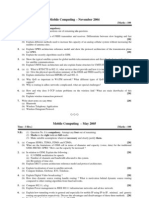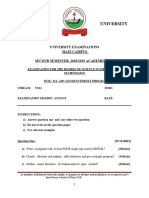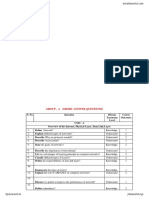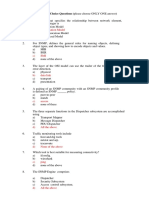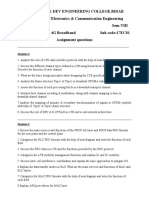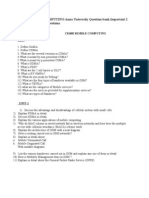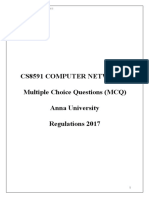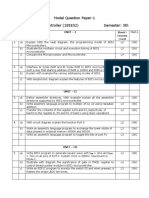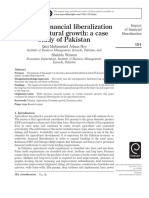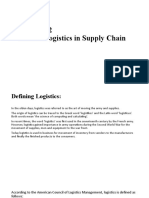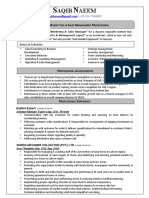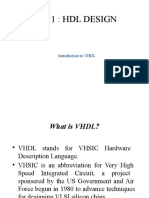0% found this document useful (0 votes)
911 views4 pagesWireless Networks, Course Outline
This document outlines the course details for a Wireless Networks course offered in the fall 2017 semester. The 3-credit course will introduce students to wireless communication basics, cellular network evolution and design, and emerging wireless technologies. Key topics include wireless transmission techniques, cellular systems like GSM and WCDMA, and networks such as wireless LANs, sensor networks, and WiMAX. Student performance will be evaluated based on midterm and final exams, quizzes, assignments, projects and attendance. The syllabus provides policies on class attendance, academic integrity, communication guidelines, and exam protocols. Required resources include lecture materials and the textbook "Wireless communications and networks" by William Stallings.
Uploaded by
nidamahCopyright
© © All Rights Reserved
We take content rights seriously. If you suspect this is your content, claim it here.
Available Formats
Download as DOC, PDF, TXT or read online on Scribd
0% found this document useful (0 votes)
911 views4 pagesWireless Networks, Course Outline
This document outlines the course details for a Wireless Networks course offered in the fall 2017 semester. The 3-credit course will introduce students to wireless communication basics, cellular network evolution and design, and emerging wireless technologies. Key topics include wireless transmission techniques, cellular systems like GSM and WCDMA, and networks such as wireless LANs, sensor networks, and WiMAX. Student performance will be evaluated based on midterm and final exams, quizzes, assignments, projects and attendance. The syllabus provides policies on class attendance, academic integrity, communication guidelines, and exam protocols. Required resources include lecture materials and the textbook "Wireless communications and networks" by William Stallings.
Uploaded by
nidamahCopyright
© © All Rights Reserved
We take content rights seriously. If you suspect this is your content, claim it here.
Available Formats
Download as DOC, PDF, TXT or read online on Scribd
/ 4










